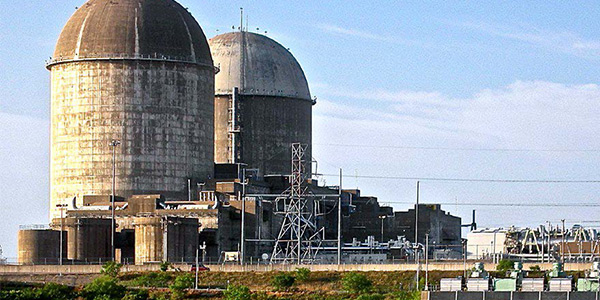Texas regulators last week approved the election of Michigan Public Service Commissioner Sally Talberg and two others to three-year terms on ERCOT’s Board of Directors.
“I’m not trying to pick favorites, but I’m so excited to have Sally Talberg back,” Texas Public Utility Commission Chair DeAnn Walker said during the commission’s open meeting Thursday. “I’m glad to have her back in the ERCOT group.”
Walker said that Talberg approached her recently and asked her advice about joining the ERCOT board.
“I said absolutely,” Walker said. “I’m glad to have her back in the ERCOT group.”
Talberg advised the PUC from 2000 to 2004 during Texas’ transition to retail competition. Pat Wood III chaired the PUC at the time and would go on to also chair FERC under President George W. Bush. Judy Walsh, due to cycle off ERCOT’s board after this year, also served on the commission then.
While working on a master’s degree in public affairs from the University of Texas at Austin, Talberg also worked at the nearby Lower Colorado River Authority.
Talberg told RTO Insider she had expressed her interest in joining the ERCOT board some time ago, “initially thinking it would be some far-off prospect after serving on the MPSC.”
“But these spots were opening, so it happened earlier than I anticipated,” she said.
Talberg was first appointed to the PSC in 2013, serving as chairman from January 2016 to July 2020. Her term expires next July, but she has said she will step down from the commission once her appointment to the ERCOT board is official. (See “Michigan PSC’s Talberg Among Director Nominees,” ERCOT Board of Directors Briefs: June 9, 2020.)
The PUC also approved the elections of retired ISO-NE General Counsel Raymond Hepper and incumbent Director Terry Bulger to the ERCOT board. All three will serve as unaffiliated directors.
The board’s Nominating Committee has put forward former Consolidated Edison CEO Craig Ivey for the final vacant seat. Ivey will be presented to members during their virtual annual meeting in December.
D’Andrea Jumps the Gun
During the PUC’s open meetings, Walker typically opens discussion of a docket by saying she has written a memo with suggested changes. Commissioners Arthur D’Andrea and Shelly Botkin then usually express their agreement and approve the order.
The practice caught D’Andrea off-guard last week as Walker opened discussion of Oncor’s request for a limited code-of-conduct waiver from the commission’s affiliate reporting and affiliate transaction rules (50893).
“I agreed with your memo…” D’Andrea began.
“I didn’t have a memo. Arthur, why are you making it harder?” Walker responded, teasing D’Andrea. The few staffers in the socially distanced hearing room erupted in peals of laughter.
The commissioners agreed they had no concerns with the affiliate issue and approved the order.
Nuke Decommission Fund Remanded
The commission remanded back to docket management the Comanche Peak nuclear power plant’s requested review of its decommissioning cost study and funding analysis, finding that they do not include evidence required by Texas’ administrative code (50945).
Walker noted in a memo that the study and analysis were not accompanied by a report or supporting testimony and the requested annual funding amount; the decommissioning trust fund’s administrator did not demonstrate the funds are being invested prudently and in compliance with their investment guidelines; and the administrator did not demonstrate efforts to achieve “optimum tax efficiency.”
Comanche Peak Power Co. (CPPC) administers the decommissioning fund. It wants to continue the fund’s annual contribution of nearly $20.1 million through 2025, split between the plant’s two units on a 72.3/27.7% basis. The current approved allocation amount is on a 57.1/42.9% split.
CPPC said the two units have a net after-tax value of $1.32 billion. It says according to a May decommissioning cost analysis, it will cost $1.73 billion in 2019 dollars to decommission and completely dismantle Comanche Peak. The analysis shows about a -2.5% difference between the $19.4 million required funding levels and the five-year average decommissioning-fund collections of $19.9 million annually from 2015 to 2019.
In other actions, the PUC:
- authorized Southwestern Electric Power Co.’s (SWEPCO) and El Paso Electric’s (EPE) adjustments to their energy efficiency cost recovery factors. SWEPCO will be allowed to recover $5.2 million (50805) and EPE $5.9 million during the 2021 program year (50806).
- allowed EPE and Entergy Texas to issue fuel refunds following settlement agreements. EPE will refund $9.4 million (50940) and Entergy $25.5 million (51037) to ratepayers.






